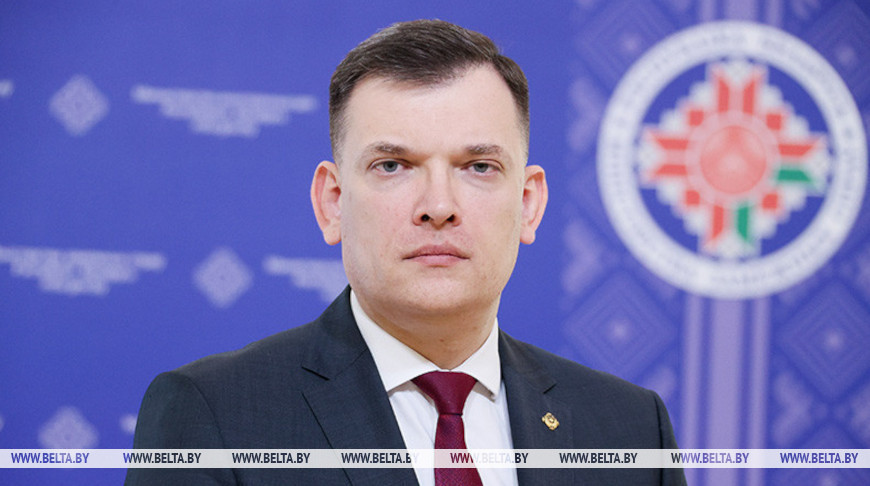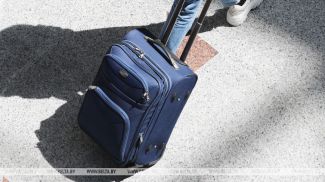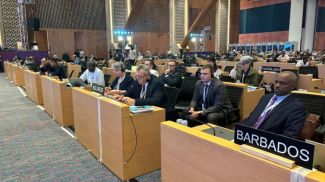
Yuri Ambrazevich. An archive photo
MINSK, 13 March (BelTA) – The world would be much closer to achieving the Sustainable Development Goals (SDGs) if not for Western self-restraint, Deputy Minister of Foreign Affairs of Belarus Yuri Ambrazevich said addressing the UNECE High-level Policy Segment - Regional Forum 2024 in Geneva, BelTA has learned.
“The strange thing is that Western governments apparently believe that by depriving their citizens of the opportunity to cooperate with Belarus, they are doing them a favor. In reality, without these Western self-restrictions, everyone in the world would have been much closer to achieving the SDGs,” said the deputy foreign minister. The governance system in Belarus allows the country not just to survive, but also to achieve the most important goal: to maintain peace and ensure sustainable development.”
According to Yuri Ambrazevich, Belarus’ economic performance in 2023 proves that the country is going in the right direction. Thus, in 2023, Belarus’ GDP grew by almost 4%, which is several times higher than the EU average, for example. As a result, Belarus’ national SDGs implementation stands at about 80%.
“We are ready to share national experience. In the middle of the year, Belarus is holding the second National Forum on Sustainable Development and invites everyone to take part in it. Belarus is convinced that genuine cooperation and joint efforts are the path to world peace and global sustainable development,” the Belarusian diplomat emphasized.
He went on saying that 2023 saw the highest number of regional armed conflicts in several decades: “Europe remains an arena of global confrontation, a source of increased danger to humanity. European countries withdraw a huge amount of resources from the social security sector and economy to spend them on the arms race. An increasing number of barriers are emerging between regional economic unions in Greater Europe. Restrictions on transportation, closure of border checkpoints, trade bans, problems with banking transactions, visa bans, and bans on cultural cooperation herald the emergence of a new Iron Curtain.”
The prospects for pan-Eurasian land routes are becoming less and less certain. “The energy infrastructure, which was meant to connect Europe and Asia, is rapidly transforming to cater for other markets. Western Europe was the main factor in the global food crisis, single-handedly provoking an increase in grain prices, depriving countries, in particular African ones, of access to Belarusian potash fertilizers,” Yuri Ambrazevich noted.
According to him, all this suggests that the window of opportunities for implementing the Sustainable Development Goals in Europe has narrowed significantly. This also calls into question Europe's leadership role in the global achievement of the SDGs.
Belarus, in turn, realistically assesses the current situation and pursues its development strategy relying on its own strengths and like-minded partners. “Inside the country, we rely on a strong state that addresses systemic problems. The authorities are consistently developing partnerships with businesses, non-governmental organizations, the youth, and the academic community, whose invaluable contribution allows us to focus on more specific issues,” the deputy foreign minister noted.
Yuri Ambrazevich emphasized that this helps the country to hold out in a situation where most Western states apply bans and restrictions on trade, transportation of goods, and the movement of people against ordinary Belarusian people and enterprises.
“It helps us not just to stay afloat, but also to move forward. At the same time, it is important to keep in mind that Belarus did not initiate a single unfriendly move against Western nations. We do not do this because we understand that scaling down cooperation means fewer opportunities for internal development,” said the deputy foreign minister.











